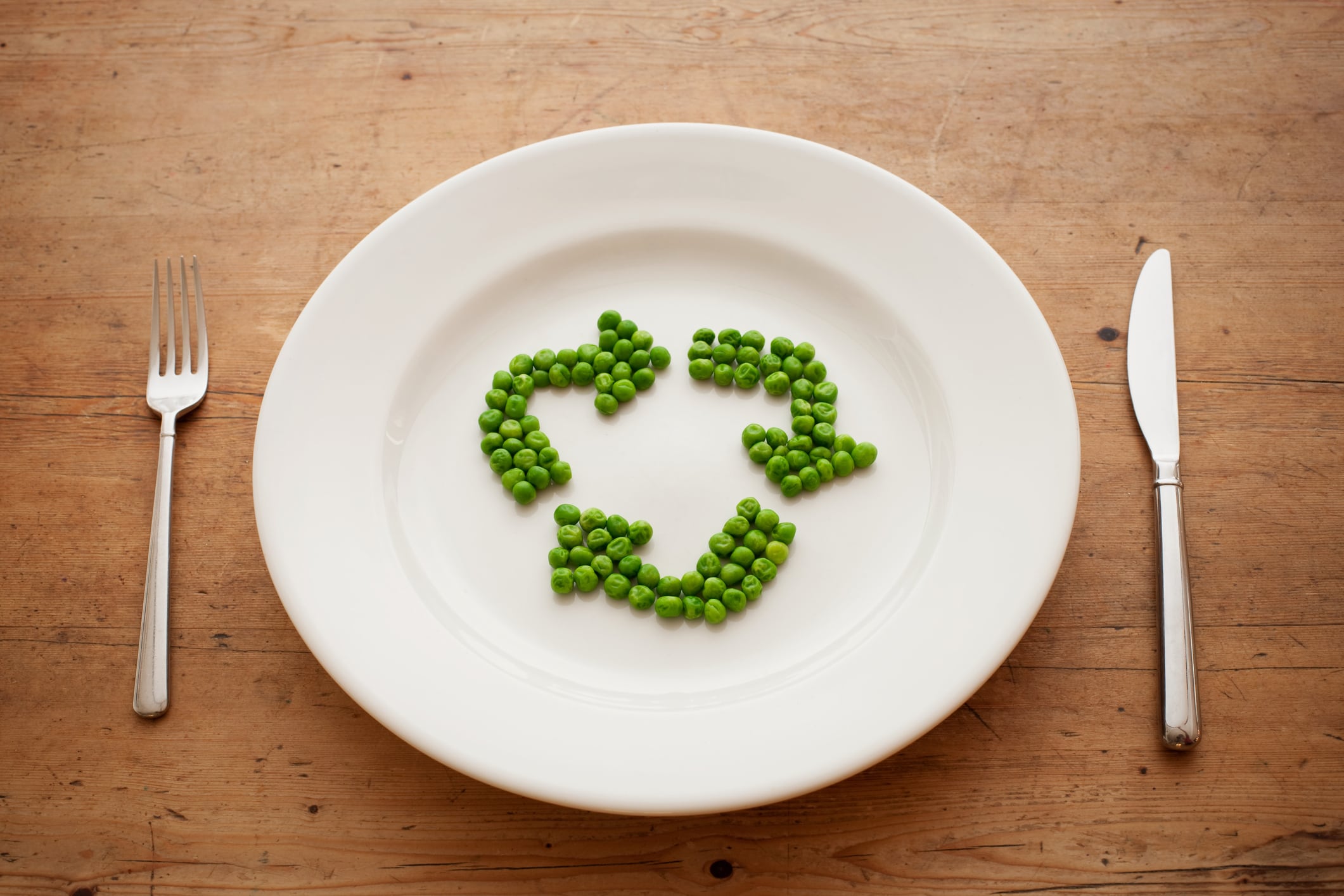The Simpler Recycling rules are part of a three-legged stool of packaging related legalisation (known collectively as CPR) which include the Deposit Return Scheme (DRS) and Extended Producer Responsibility (EPR).
Currently, there is no legal requirement on businesses and non-domestic premises to separate dry recycling and food waste. With the new Simpler Recycling scheme that’s set to change next month.
Who is affected and what are the deadlines?
From 31 March 2025, small, medium and large workplaces will by law have to recycle all waste streams, except plastic films (which will be encompassed later on).
Micro-firms – workplaces with less than 10 full-time employees – will be granted an additional two years to comply, with the deadline set for 31 March 2027.
Why do we need Simpler Recycling?
Since 2022 recycling rates have been stagnant at 44%, Aaron Moon, senior policy adviser at Defra said during a webinar aired today (27 February 2025), as he explained how this was not only jeopardising net zero targets but also adding costs to businesses.
The Circular Economy Package outlined by the government in 2020 sets a target to recycle 65% of municipal waste by 2035 and halve residual waste per capita by 2042.
The Public Accounts Committee, however, has pulled into question how the Defra expects to achieve its 65% target. In response, HM Treasury has said that meeting this commitment will likely require policies beyond CPR.
Commenting on the benefits of the upcoming scheme, a spokesperson for Defra told Food Manufacture: “Simpler Recycling is a crucial part of our Collection & Packaging Reforms, alongside pEPR and the Deposit Return Scheme. By implementing this, we will make recycling easier and ensure there is a comprehensive, consistent service across England. This will reduce confusion with people being able to recycle the same materials, whether at home, work or school.
“Our reforms will support the government’s priority to transform Britain from a throwaway society into a circular economy where reuse and repair becomes the norm, not the exception. A system where products are built to last, not designed to fail. Where materials aren’t wasted but given new life again and again.”
What does Simpler Recycling require?
Workplaces will need to separate waste streams into dry recycling (plastic, metal and glass), paper and cardboard, food waste, and residual waste.
There may be instances whereby a business can have dry mixed recycling, and paper and card collected together where the waste collector has completed a co-collection assessment.
It’s also important to note that waste collectors will differ, so businesses will need to check their preferences. For example, they may require you to separate glass and will have varying levels of contamination exception.
All food waste needs to be separated from recycling – and businesses cannot ask staff to take home food waste home with them. Food waste applies to any generated – this can include offices and staff areas.
However, as Moon said: Workplaces are still encouraged to follow the food and drink waste hierarchy – ensuring food waste is prevented where possible.
There is also no minimum threshold weight for food waste and no minimum waste collection frequency for any of the streams. Business will need to agree the latter with their waste collector. Upping the frequency of collection could, for example, be a good option for those businesses with limited space.
Compostable packaging is not in scope of Simpler Recycling and this will need to be disposed of as residual waste or a separate agreement should be organised with your waste collector. Reviews are underway to explore the suitability of compostable packaging, as there are currently concerns over this.
Previously mandatory labelling rules have been put on pause following EU backlash, but Moon has said these are still expected to come into force in the future.
Whilst food waste must be de-packaged when recycled, where it is not possible to do so, businesses can discuss with their waste collector to what extent packaging is acceptable. Equally, packaged food must not be disposed of in the residual bin. Food waste may also be disposed of inside a biodegradable bag rather than loose.
There is currently work on-going around plastic films, with a trial called FlexCollect underway that is exploring how these are best collected. These films are currently earmarked for inclusion within the Simpler Recycling regime on 31 March 2027.
Solutions to address challenges
WRAP estimates that around 2.2 million businesses will need to separate waste once the new laws come into force. Around 40% do this regularly already, but smaller and micro businesses have particularly struggled in the past.
Nicola Kemp, waste & recycling specialist from WRAP said this has been a result of a lack of clarity around responsibilities, cost pressures and little knowledge on how recycling containers can benefit. aste
During the aforementioned Defra webinar, she flagged several common issues among smaller players, including high staff turnover, shared bins open to abuse, and often the assumption that they don’t produce enough waste to warrant a recycling service.
Several mechanisms were laid out to address the key challenges:
Cost
- Use WRAP’s Business of Recycling Waste Calculator
- Optimise your service by reducing your residual waste size/or collection frequency
- Discuss service optimisation with your waste collector
- Get multiple quotes for new waste collection contracts
Space
- Consider the bins you need – can they be smaller or stacked?
- Can you share bins with other neighbouring small businesses? (Make sure you have proof if this is a route you follow!)
- Discuss options with your waste collector, including whether sacks could be used instead of bins
- Encourage employees to compact waste such as cans and cardboard to maximise space
Time
- Plan effectively – what you need and by when so you can implement changes on time
- Reduce friction for your staff to use the right bins by placing these in sensible areas and providing clear signage on what should go in each bin
That doesn’t mean this isn’t a complex task for larger businesses though and WRAP has set out several tips for big food and drink manufacturers ahead of the deadline next month.
This includes identifying and assembling a team who can give you the information you need and who have the skills and time to specify the service and evaluate the tenders. Your procurement team can be drawn from internal staff, from external procurement specialists, or a combination of the two.
It also advises that you have the right people involved up front to prevent problems down the line and identify who will manage the contract so you can ensure you service is delivered to specification.
It also suggests completing a waste audit review beforehand and once you have started the new process to give you a comparison, and then to carry out regular reviews as you go on.
Daniel Redfern, director at Envirovue, an innovative waste management specialist, shared his advice on how businesses can prepare for the new legislation with Food Manufacture: “For companies producing a large amount of waste, it’s useful to implement a tracking system to record how much food waste your business generates and where it goes. It therefore becomes easier to see if too much food is being produced to begin with. It’s also important to consider that organic waste can be of value - it can be used as compost and can serve as raw material for anaerobic digestion.”
What will happen if a business doesn’t comply?
The Environmental Agency (EA) has a process in place to identify non-compliance which includes analysing the data and information available to them, receiving and reacting to reports of non-compliance, and through its work with industry partners.
“Our first response is to give advice or issue a warning to bring an offender into compliance. We will normally consider all options before criminal proceedings,” a spokesperson for the EA added.
Criminal proceedings will come in the form of a fine – the level of the fine is not specified and is at the discretion of the court.
Note that the EA cannot issue a fixed penalty.





